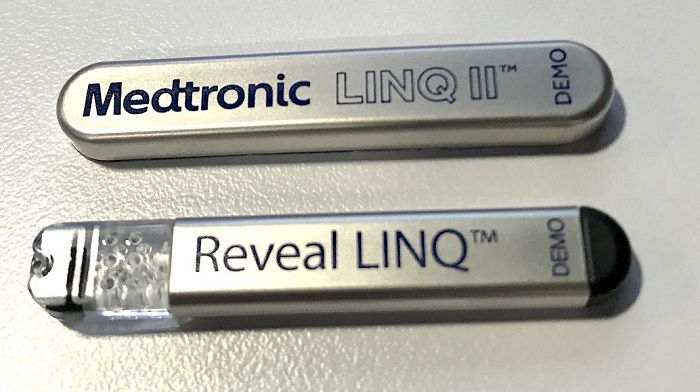Medtronic announced new data from the STROKE AF clinical trial, which showed that large and small vessel ischemic stroke patients who receive short-term or intermittent monitoring (i.e., holter monitors and 30-day external monitors) may not be optimally managed for recurrent stroke prevention versus those who received continuous monitoring with insertable cardiac monitors. The data will be presented at the Heart Rhythm Society’s annual Heart Rhythm meeting in San Francisco on Sunday.
In the analysis, which used simulation methods to evaluate 242 patients, the rate of AF incidence (≥2 minutes) was 12.1% at one year in patients with the Reveal LINQ™ Insertable Cardiac Monitor (ICM), while intermittent monitoring showed an AF incidence rate between 0.2 – 2.5% during the same period. Results indicated that even the most aggressive intermittent monitoring strategy would have missed 79% of patients who had ≥2 minutes of AF detected.
“Based on the primary findings from the STROKE AF study we know that detection of AF after stroke is important because it often leads to an evidence-based change in therapy that can prevent secondary stroke from occurring,” said Jonathan P. Piccini, M.D., electrophysiologist and associate professor of medicine at Duke University Medical Center in Durham, N.C. “This analysis using simulation methodologies tells us just how much AF would be missed in these ischemic stroke patients when intermittent monitoring strategies are used instead of continuous monitoring. The majority of patients with AF after stroke would have eluded detection with even the most comprehensive intermittent monitoring strategy; therefore, the absence of AF with intermittent monitoring does not always imply freedom of AF.”
The sub-analysis is part of the STROKE AF, a prospective, multi-site, randomized (1:1) clinical trial comparing ICM monitoring to site specific standard of care (SOC) in patients with stroke attributed to large artery atherosclerosis (LAA) or small vessel occlusion (SVO). Primary results from the STROKE AF trial demonstrated the superiority of the Reveal LINQ™ Insertable Cardiac Monitor (ICM) to detect AF in both large and small vessel stroke patients compared to standard of care. The findings were published in the June 1, 2021 issue of the Journal of the American Medical Association (JAMA).


















